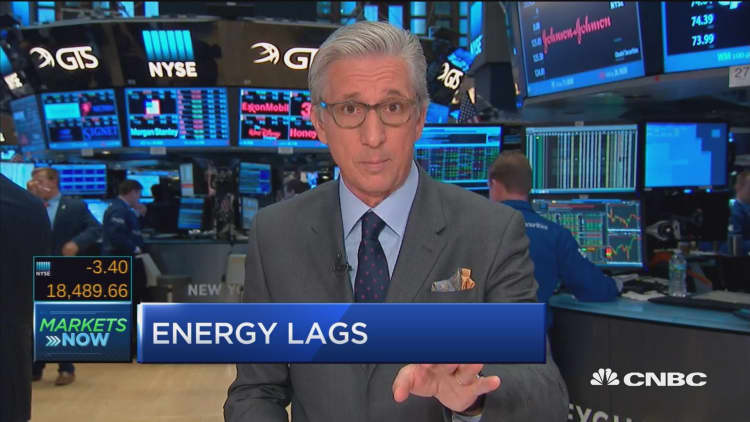
The recent decline in crude oil maybe a serious problem for the earnings "narrative" for the stock market in the second half of the year. Oil, which has traded between $45 and $50 for the past two months, is now trading in the $42 range.
That wasn't supposed to happen. There are two related "narratives" that were supposed to play out in the second half of 2017:
- Oil was supposed to stay in the"comfort zone" between $45 and $50 and then gently rise in the second half of the year.
- This morning, BP's CEO Bob Dudley said he expects oil prices to average between $50 to $60 a barrel next year. He expects the crude market to tighten and the gasoline glut to abate.
- That's the narrative. But the markets aren't cooperating. Gasoline demand is strong, but refiners are still pumping out more. Over the weekend, it was widely noted that you could buy gasoline in many places in New Jersey for under $2 a gallon.
- This morning, Morgan Stanley said oil could move into the mid-$30s once again. "We see worrisome trends for supply, demand, refined products, the macro and positioning that may all coalesce in late summer," the report said. - Oil company earnings profits were supposed to trough in Q1, improve in Q2, show more improvement beginning in Q3 and dramatically improve beginning in Q4 as firmer oil prices pull everyone up.
S&P Energy Sector Earnings 2017
Q1: down 105%
Q2 (est.) down 79%
Q3 (est.) down 52%
Q4 (est.) up 18%
Source: Thomson Reuters
Oil stock prices have moved in lock-step with this narrative, with the Energy Select SPDR ETF, the largest Energy ETF, up over 30% since bottoming in January. Oil stocks are trading up based on: 1) higher crude, 2) lower cost of capital, and 3) the assumption of renewed growth going into 2017 (i.e. higher demand).
But that narrative may also have problems. If oil stays near $40 for the rest of the year, oil company earnings are clearly in jeopardy.
How much? I called my old friend Fadel Gheit, energy analyst at Oppenheimer. He noted that his Q3 estimate for Chevron of $0.69, roughly in line with consensus of $0.68, was in jeopardy and he may have to lower the number. He was waiting for the Chevron conference call on Friday to determine what he would do next.
You can bet a lot of analysts are doing the same.
Because oil companies are an important part of the earnings "narrative", the assumption that "trough earnings" occurred in Q1, not just for oil stocks, but for the S&P 500 as a whole, is also in jeopardy:
S&P 500 Earnings 2017
Q1: down 5.5%
Q2 : down 3.7%
Q3: up 1.1%
Q4: up 8.9%
Source: Thomson Reuters
So who cares if earnings growth remains negative? Who cares if Q3 and Q4 earnings falls apart because oil is a mess again?
Market bulls care. A lot. Remember, stocks are essentially at historic highs, with four consecutive quarters of negative earnings growth. Stocks are holding up because: 1) The U.S. is outperforming other economies, and 2) ultra-low interest rates makes stocks more attractive.
But this narrative can only go so far. There is already a loud and persistent minority who insists that stocks are not "fairly valued" or "fully valued" (the majority narrative) but that the market is "overvalued."
Bulls badly need to change the narrative from "earnings recession" to "return to earnings growth" to keep up the "moral high ground" of the valuation argument.
And remember, oil is a proxy for global growth and demand. Lower oil also feeds into a narrative of slower growth, regardless of whether the U.S. is the best house on the block.
You can see why market bulls are a little nervous, and why many old-school market watchers like UBS' Art Cashin remain fixated on oil.


